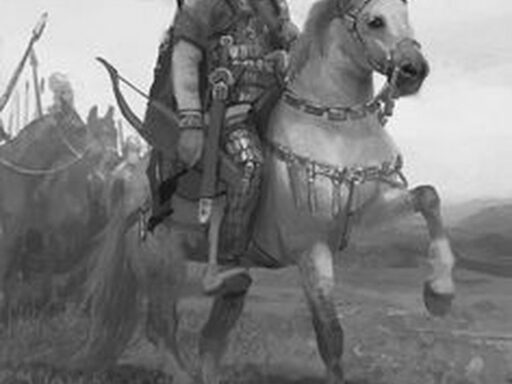Historians primarily work as academics at universities, combining teaching, research, and publishing. They do not earn significant money from book sales. Instead, publishing enhances job prospects and reputation rather than forming a major income source. Alternative employment includes museums, archives, military agencies, corporations, consulting, archaeology, and tourism.
Most historians hold university teaching positions. These roles involve educating undergraduate students, supervising graduate research, and producing scholarly publications. Teaching occupies the bulk of their time. Junior colleges and four-year colleges frequently employ historians but often impose heavier teaching loads. The academic job market for historians remains tight and competitive worldwide.
Academic publishing, especially books, does not generate substantial earnings. Most academic books undergo limited print runs, yielding minimal royalties. Often, historians receive flat fees instead of royalties. Textbooks can provide somewhat higher income; however, they still represent unreliable revenue, requiring constant updates and new editions to sustain royalty payments. Publishing mainly advances career opportunities rather than remuneration.
Museum historian roles differ from academia. Researchers work by examining archives, libraries, and collections, drafting or translating publications, and sometimes presenting findings publicly. However, much time can be spent on administrative work like document formatting. Museum historian jobs usually demand graduate training.
Some historians serve as librarians or archivists in universities or cultural institutions. Though trained in history, these roles emphasize different skill sets and daily tasks than academic historians.
Military historians support defense organizations by writing official unit histories, managing heritage projects, designing exhibits, and producing articles. They attend organizational meetings, collect and preserve records, and conduct oral histories. This employment typically involves both active research and administrative responsibilities.
Consulting and freelance work can supplement historian incomes. Historians may work on short-term projects for museums, private clients, or nonprofits. However, such opportunities are irregular and reduced since the COVID-19 pandemic. Despite sporadic nature, consulting pays well when available.
Large corporations sometimes employ historians to document company history, investigate past issues, or serve in archivist roles. For example, Deutsche Bank in Germany maintains a historical association focusing on corporate legacy, including sensitive historical reviews, such as those related to World War II. These roles blend research and archival maintenance.
Historians may collaborate with archaeologists and cultural resource management practitioners. They conduct historic site surveys and review parcel histories before fieldwork. Specialists in architectural history often find employment with cities or private entities assessing historic property modifications.
Many individuals trained in history pursue careers outside traditional historian roles. They may work as translators, publishing editors, lawyers, politicians, teachers, entertainers, therapists, soldiers, or economists, often obtaining additional qualifications. Some leave academia, focusing less on publishing and more on practical applications of their skills.
Tour guiding represents an alternative employment avenue for historians. Guides apply research ability to craft engaging narratives for audiences. Although more aligned with entertainment than formal education, tour guiding can offer gratifying experiences and reasonable compensation. Geographic limitations apply based on local historical richness.
| Employment Area | Role Description | Income Notes |
|---|---|---|
| Universities | Professors teaching, researching, publishing | Stable salary, high competition |
| Museums | Researchers, public presentations, content creation | Varied pay, often contract-based |
| Military | Official histories, heritage projects, oral histories | Government salary levels |
| Corporate | Company historians, archivists | Dependent on company scale |
| Consulting/Freelance | Short-term specialist projects | Well-paid but infrequent |
| Archaeology / CRM | Historic surveys, property research | Contract or city employment |
| Tour Guiding | Presenting history to public | Variable; often location-based |
Historians do not typically earn income that derives directly from their publications. Instead, book publishing improves academic status, which can lead to better employment and salary. Research and teaching dominate their professional lives. Alternative careers linked to history draw on research and communication skills but may require additional training.
- Historians mostly work as university professors combining teaching, research, and publishing.
- Income from academic book sales is minimal and unreliable; textbooks offer limited additional income.
- Museums, military, corporate sectors, and consulting provide alternative career paths.
- Many history graduates leverage their skills in diverse fields beyond traditional historian roles.
- Tour guiding offers a rewarding option that emphasizes presenting history engagingly.
What Do Historians Really Do? How Do You Earn Money? Where Do Historians Work?
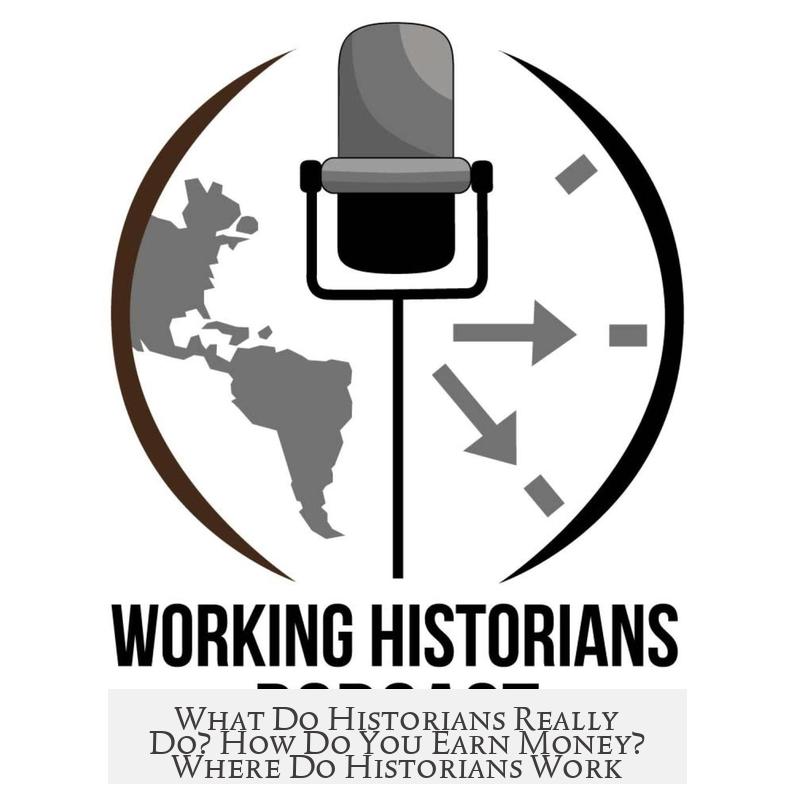
Ever wondered what historians actually do when they’re not buried under dusty old manuscripts? Or how they keep the lights on if their book royalties are, well, not exactly raking in millions? Where do these purveyors of the past plant their flags in the professional world? Let’s unravel this mystery together. Historians mainly work as university professors who teach, research, and publish, but the money from books is tiny, and many find alternative roles in museums, archives, the military, consulting, and beyond.
Sounds straightforward? Not quite. The historian’s life is full of surprises, bad jokes about paychecks, and a career journey that can take you from lecture halls to dusty archives, or even boardrooms. Let’s dive into what historians really do, how they earn money, and where they work.
A Bookworm’s Reality: Earnings from Books and Publishing
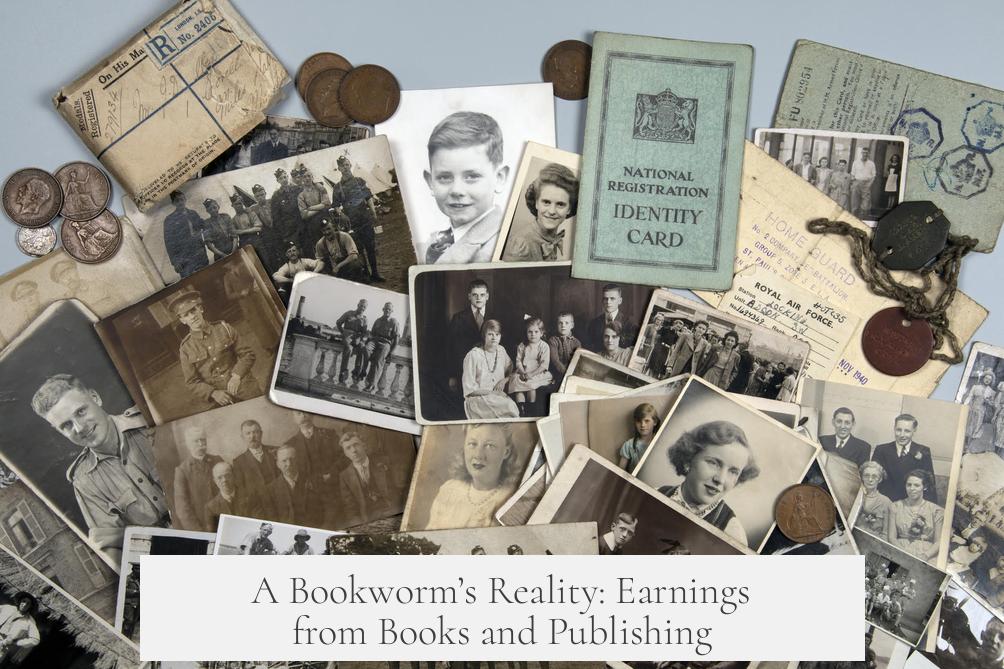
First things first, a common myth: Historians make heaps of cash selling books. Spoiler alert: They don’t. Academic books about history rarely see large audiences.
Why? Most academic books get only limited print runs. That means small royalty checks or sometimes none at all. For example, one anthropologist friend made just $800 flat for her entire first book. That’s less than some get for a night out!
Textbooks can sometimes be a silver lining. Writing a textbook might generate a modest income. But it’s not a reliable paycheck — royalties are small and depend on frequent new editions to stay relevant. So, you can’t quit your day job just because your textbook sales have peaked. Publishing history books is usually a strategic career move rather than a money-maker. The main goal? Improving job prospects, not buying yachts.
Where Historians Usually Clock In: Universities and Academic Roles
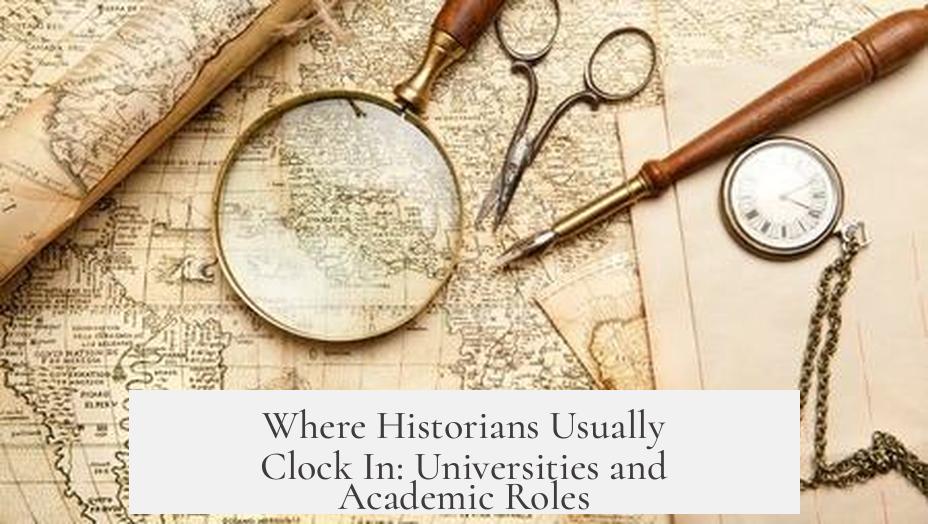
Most historians find their boat anchored in universities. Yes, the ivory tower isn’t just a metaphor; it’s a real workplace. Professors juggle teaching, research, and publishing. They shape future historians one lecture at a time, supervising theses and dissertations.
Daily duties? Teaching history to undergrads, shepherding grad students through research labyrinths, and writing articles or books about new historical findings. If you’ve ever read a history book in a library, chances are it came from a university professor who needs to ‘publish or perish.’
Here’s the kicker: most of their time is spent teaching. Many historians work in junior or four-year colleges with heavy teaching loads and sparse resources. The academic job market is tough — especially in history. Not everyone lands that coveted tenure-track job. In places like Cambodia, history professors get paid hourly based just on classroom time. Yep, no office hours, meetings, or preparing lectures—just the hours spent physically at the desk. That reality might make you think twice before chasing academia.
Beyond the Lecture Hall: Alternative Employment Options
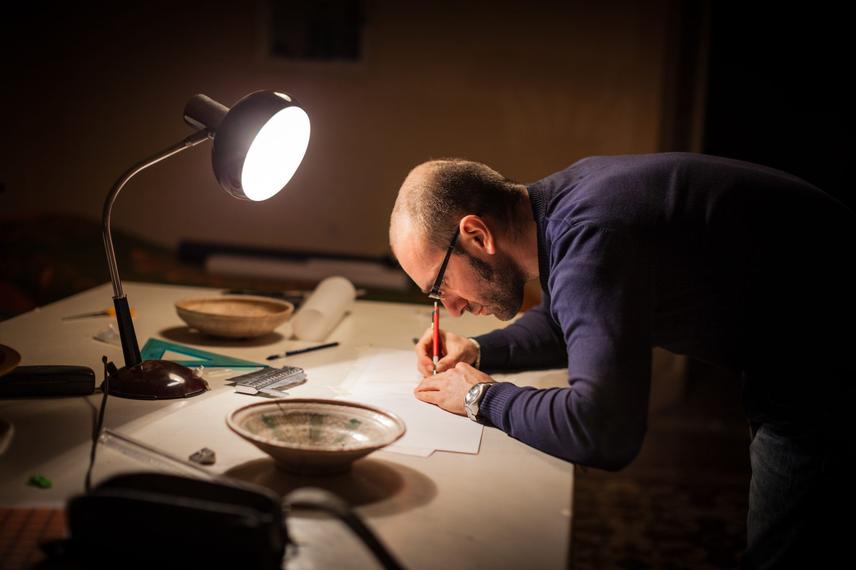
Historians sometimes venture into other roles where their skills shine. Museums, for example, employ historians as researchers. Their tasks can sound glamorous—digging through archives and writing about fascinating past events. Though, reality check: a lot of time might go to formatting Word documents and other digital chores. Because, well, it’s 2023 and computers rule.
Then there are librarians and archivists. Many historians take these roles at universities or public institutions. Though related, their everyday work often differs from that of academic historians — think cataloging, preserving, and managing records rather than teaching or research.
The military also heavily employs historians. Some work directly with defense organizations to write unit histories, design exhibits, and conduct oral histories with veterans. Their job includes attending meetings and gathering documents to support current missions while preserving history for future study. This blend of archival research and active engagement with present-day military operations offers a unique historian’s role.
A few historians dabble in consulting and freelance work for museums or private clients. These gigs pay well but are few and far between. The pandemic has further dried up these opportunities. So, while it’s nice to get sporadic cash injections, it won’t cover your rent long-term.
Some large corporations also hire historians. Think of it as corporate detective work—writing company histories or investigating past controversies. Take Deutsche Bank’s Historical Association in Germany, which delved into company history regarding WWII. Historians here blend archival research with corporate PR and ethics.
Historians sometimes join archaeological teams, especially in cultural resource management. They conduct historic site surveys or review property histories. One colleague specialized in architectural history, working with cities or property owners to assess alterations’ impact.
History’s Many Hats: Non-Traditional and Adjacent Roles
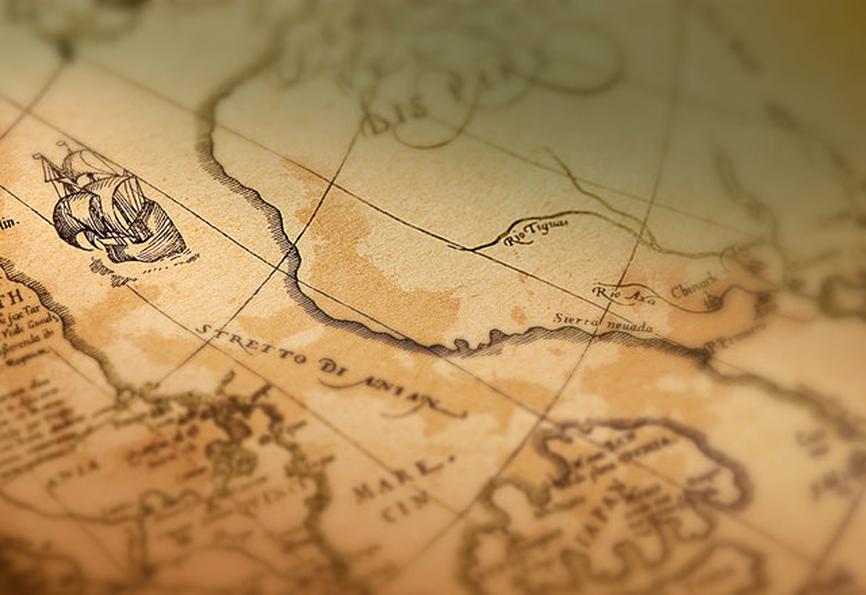
History skills often unlock doors beyond the traditional path. Some historians switch careers, using their talents in translation, editing, law, education, or even entertainment. One translator shared how medieval handwriting skills came in handy deciphering modern medical notes—not your everyday crossover!
Other common alternative careers include journalism, politics, museum curation, school teaching, costume design, or even therapy. These roles often require additional training, but the critical thinking, research, and storytelling skills from history prove valuable.
Many who leave academia stop publishing professionally but keep a personal passion for historical research and writing alive on the side. They strike a balance between their day job and the love of history.
Walking the History Tour: A Different Stage
Tour guides who know their history bring another layer of excitement to the past. Some historians turn to tour guiding where they use research skills to craft engaging narratives for tourists. It’s entertaining and sometimes well-paid, though it depends on location—rich with history equals rich with tourists.
Tour guides wear the historian’s hat in a performance setting, blending education with entertainment—answering curious questions, teasing out interesting facts, and bringing history alive in the present.
The Bottom Line: What to Expect and How to Prepare
So, what’s the real picture?
- Most historians are university professors who teach, research, and write. They seldom make decent money from book sales alone.
- The history academic job market is fiercely competitive and offers limited tenure-track openings.
- Alternative careers include roles in museums, archives, military history, corporate positions, cultural resource management, and consulting work.
- Many historians pivot into different fields by leveraging their research, writing, and analytical skills.
- Tour guiding provides a fun and unique use of historical knowledge within entertainment and tourism.
As one sage historian put it bluntly, “So yeah, don’t go into academia :)” But don’t be discouraged! There are great opportunities if you’re ready to look beyond the textbook.
Tips for Aspiring Historians
- Gain diverse skills beyond traditional history methods — digital humanities, writing, public speaking.
- Network in museums, libraries, and cultural institutions early.
- Consider internships or volunteer roles to build experience outside academia.
- Explore freelancing or storytelling in history to diversify income streams.
- Stay adaptable; history skills can open doors you didn’t expect.
Wondering whether a historian’s life is for you? Imagine handling fascinating stories, digging into mysteries of the past, shaping minds, but also navigating a maze of job challenges. It’s not glitzy or glamorous, but it can be deeply fulfilling if you love history and keep an open mind about where the path can lead.
Leave the Past, But Make History
Historians do more than just know dates and events. They are storytellers, educators, researchers, analysts, and sometimes even detectives. Their impact stretches from university halls to museums, military bases, and city streets through guided tours.
Their earnings often don’t reflect their passion and expertise, especially when relying on books alone. But their work preserves collective memory, informs the present, and shapes the future. Whether exploring ancient scrolls or narrating corporate legacies, historians connect us with the past in meaningful ways.
So, what’s YOUR story going to be? The historian who taught thousands, who unearthed secrets in forgotten archives, who shaped public understanding through captivating tours? Or the adaptable professional thriving across multiple fields? One thing’s clear: history is alive, and historians keep its heart beating.
What do historians mainly do in their jobs?
Most historians work at universities. They teach history courses, research historical topics, and publish books or articles. Teaching often takes up most of their time.
Can historians earn good money from writing books?
Historians rarely make much money from books. Academic books have small print runs, leading to low royalties. Textbooks may earn some money but are not a steady income source.
Where else can historians work besides universities?
Historians may work in museums, as librarians, archivists, or for the military. Their roles include research, writing, and supporting heritage projects.
How do military historians contribute to their organizations?
Military historians write unit histories, design exhibits, conduct oral histories, and support ongoing organizational efforts by gathering and preserving documents.
Is the job market for history professors strong?
The academic job market is tight, especially for history. Many positions are at junior or 4-year colleges with heavy teaching loads, and pay can vary widely.




